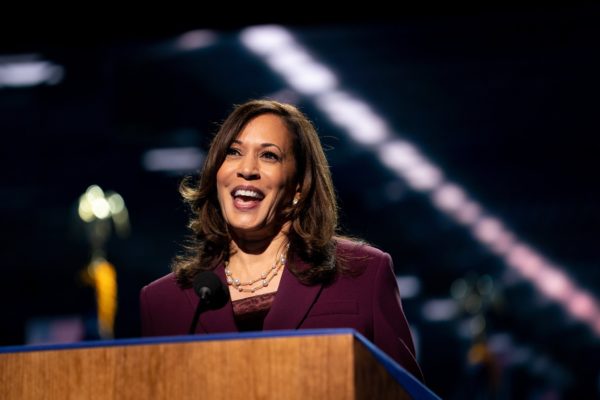Anamika Dey , editor
News in brief
France’s parliamentary elections have seen a left-wing coalition win the most seats, defeating Marine Le Pen’s National Rally party. Despite the unexpected results, French voters punished President Emmanuel Macron’s centrist party less than pre-vote surveys and political analysts predicted. Jean-Luc Mélenchon’s New Popular Front gained 182 seats in France’s 577-seat National Assembly, followed by Macron’s centrist coalition with up to 168. National Rally placed third, winning 143 seats. The future government of France is unclear, with Macron safe as president. France is anxious about immigration, crime, and inflation-hit household finances, and the Paris Olympic Games are clouded by the election. The New Popular Front, a coalition of leftist parties from far-left to centrist, aims to avert a far-right administration. Le Pen has long claimed that EU farming and border security measures have hampered France, while Macron’s seven-year pro-business experiment to increase France’s economy and restructure its welfare state fails. Macron’s reforms of public services, welfare, and retirement age have infuriated many in France, and far-right analysts have called him “elitist, arrogant” and out of touch with France’s lower and middle classes.

News in details
A left-wing coalition won the most seats in France’s parliamentary elections, official results indicated Monday, defeating Marine Le Pen’s National Rally party. Voters opposed to her far-right ideas appeared to heed pleas from other organisations to stop her party from power.
Despite the surprising results, French voters punished President Emmanuel Macron’s centrist party less than pre-vote surveys and political analysts predicted.
Jean-Luc Mélenchon’s leftist New Popular Front gained 182 seats in France’s 577-seat National Assembly, followed by Macron’s centrist coalition with up to 168. National Rally placed third on Sunday, winning 143 seats. This need 289 members to govern with absolute majority.
Which political group will form France’s future government is unclear from the result. Macron was safe as president regardless of the outcome. Presidents manage foreign policy and defence, while prime ministers oversee domestic issues in France.Because no party earned an outright majority, there will likely be wrangling until a coalition is established, maybe with Mélenchon as France’s new prime minister. Macron called the poll after his party suffered in EU elections last month.
“The president has to bow and admit this is a defeat,” Mélenchon said Sunday.
France is anxious about immigration, crime, and inflation-hit household finances ahead of the vote. The Paris Olympic Games, which begin in three weeks, have been clouded by the election.
Jonathan Rodrigues, 29, a National Rally-supporting butcher from Seine-et-Marne, southeast of Paris, said this vote is about reviving France.
Rodrigues called Macron’s government “total farce.”
France’s first far-right administration since World War II was looming after the National Rally party won a historic first-round vote a week ago. The party began under France’s pro-Nazi Vichy administration. On Sunday, French voters supported the New Popular Front, a coalition of leftist parties from far-left to centrist, to avert a far-right administration. Le Pen leads the National Rally with her 28-year-old protégé Jordan Bardella, whom she wanted as prime minister.
Bardella told supporters after the exit poll on Sunday that the “unnatural” and “dishonourable alliance” had “deprived the French people” of a National Rally triumph.
Le Pen has long claimed that EU farming and border security measures have hampered France. She claims NATO destabilises and antagonises Russia. She’s praised Vladimir Putin and backed Donald Trump before the 2016 election. Le Pen strongly disputes French media’s years-long investigation of her financial ties to Moscow.
“Tonight,” stated, “these alliances throw France into the arms of the far-left of Jean-Luc Mélenchon.”
The election results on Sunday might result in a hung Parliament, where the New Popular Front dominates the National Assembly but cannot enact bills without forging partnerships with other parties.
Macron’s seven-year pro-business experiment to increase France’s economy and restructure its welfare state fails. The 46-year-old former banker and management consultant, recognised globally for his tireless diplomatic efforts to promote Ukraine since Russia’s invasion, has refused to retire. He serves until 2027.
Raising retirement age, supporting Israel
Macron’s reforms of public services, welfare, and retirement age have infuriated many in France. He also faced criticism from left-wing voters for passing far-right-backed residence and citizenship exam reforms. He called for ceasefires and “unreserved solidarity” with Israel in its Gaza battle with Hamas.
Jean-Yves Camus, a far-right analyst at the Paris-based French Institute for International and Strategic Affairs, called him “elitist, arrogant” and out of touch with France’s lower and middle classes.
Camus said that many far-right French supporters saw Le Pen and Bardella as “who speak common sense” on economic and immigration concerns. He feels people frequently overlook that “politics in a country like France, which is so divided, is really difficult.”
“What is common sense when it comes to immigration?” stated.
“You can’t just put borders up or a fence up and say, ‘we’re not allowing any more immigrants.'”
Bardella claimed Macron has caused “uncertainty and instability,” adding that “for months now a wind of hope has picked up and it will never stop blowing.” The action starts tonight.”
Source : USA Today




